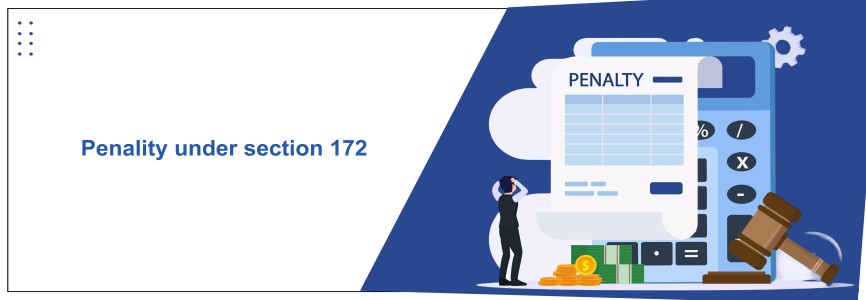Penalty under u/s 172 Of The Companies Act, 2013 for Contravention of Section 149(1)
Corporate governance in India has undergone significant change over the past decade, with the Companies Act, 2013 serving as the fulcrum for regulatory improvements designed to ensure fairness, transparency, and accountability. Among the numerous reforms introduced under the statute, the appointment of independent directors has emerged as a crucial safeguard to promote unbiased decision-making within public companies. This brief examines the recent adjudication order issued by ROC Ahmedabad in respect of Jainam Broking Limited and several of its officers for failing to comply with the statutory requirements for appointment of independent directors, providing insight into enforcement mechanisms, practical consequences, and lessons for company leadership.
Factual Background
Jainam Broking Limited, bearing Corporate Identification Number (CIN) U67120GJ2003PLC043162, was originally incorporated as a private company. On 9 November 2021, the company underwent conversion to a public limited company, thereby entering a new phase in its corporate existence which invited additional regulatory scrutiny and compliance obligations. The transition triggered the applicability of Section 149(1) of the Companies Act, 2013, read with Rule 4 of the Companies (Appointment and Qualifications of Directors) Rules, 2014. These provisions make it mandatory for public companies above certain financial thresholds to appoint at least one independent director to the board.
Upon a thorough review and subsequent application by the company under Section 454 (in Form GNL-1), it was established that Jainam Broking Limited had failed to appoint the requisite independent directors during the period between its conversion on 9 November 2021 and rectification on 12 September 2023. This period of nearly 22 months reflected an extended lapse in fulfilling a fundamental corporate governance requirement. The company reported the default proactively and a hearing on their application was conducted by ROC Ahmedabad on 2 May 2025, in which all relevant parties, including several directors and officers, were notified and given the opportunity to make representations.
Legal Issues Raised
The ROC deliberated on several key issues:
-
Whether Jainam Broking Limited, after its conversion into a public company, violated the requirements of Section 149(1) and related rules under the Companies Act, 2013 regarding the appointment of independent directors.
-
What statutory penalties and liabilities are attracted against the company and its officers in default, both collectively and individually, having regard to the duration and nature of the non-compliance?
-
Could the company pay the penalties on behalf of its directors and officers, or were such payments strictly a personal liability?
-
What recourse was available for aggrieved parties seeking to challenge the order?
Legal Framework
The relevant provisions applied in adjudicating this matter include:
-
Section 149(1): Section 149(1) of the Companies Act, 2013, which prescribes the minimum number of directors (including independent ones) for public companies. Independent directors are expected to bring objectivity, impart impartial oversight, and foster greater accountability in board decisions.
-
Rule 4: Rule 4 of the Companies (Appointment and Qualifications of Directors) Rules, 2014, which operationalises these requirements based on company status, listed/unlisted nature, paid-up capital, turnover, and outstanding borrowings.
-
Section 172: Section 172 of the Act sets out a general penalty for contraventions not otherwise specifically punishable. It prescribes a penalty of Rs.50,000 for the company and each officer, with the possibility of additional penalties for continuing defaults, subject to statutory caps Rs.3,00,000 for the company and Rs.1,00,000 for individual officers.
-
Section 454: Section 454 designates the ROC as an adjudicating officer authorised to conduct hearings, determine liability, and issue penalty orders. The prescribed procedure ensures fair notice to parties and a right to be heard, as well as an appellate mechanism.
Adjudication and Findings
Following a detailed evaluation of the facts and submissions, ROC Ahmedabad issued an order imposing both corporate and personal penalties for the established default. The decision underlines several distinct points:
First, Jainam Broking Limited, as the company responsible for regulatory compliance, was fined the statutory maximum amount of three lakh rupees (Rs.3,00,000). The penalty reflects the seriousness of the breach and sends a clear message to all companies that conversion from private to public brings with it immediate and non-negotiable obligations.
Second, multiple directors and key managerial personnel were cited as officers in default, each having different degrees of involvement and responsibility.
Penalty
Penalties imposed were substantial and, with one exception, reached the cap set by the Act:
-
Dishant Milanbhai Parikh (DIN 07761167): Rs.1,00,000
-
Meghavi Rajesh Gonawala (PAN CACPG2098A): Rs.1,00,000
-
Mittal Narendrabhai Shah (PAN EJHPS8587L): Rs.1,00,000
-
Milan Suresh Parikh (DIN 00085061): Rs.1,00,000
-
Anal Milan Parikh (DIN 01404198): Rs.61,000
-
Vidhi Dishant Parikh (DIN 07788145): Rs.1,00,000
Notably, Anal Milan Parikh was fined a slightly reduced amount of Rs.61,000, potentially reflecting mitigating circumstances or a differentiated role in the default period.
The ROC order made it explicit that no additional daily penalties would accrue, as the company had promptly rectified the default upon discovery and prior to the issuance of the final order. This decision demonstrates the value of proactive compliance in potentially limiting financial exposure.
Significantly, the order specifies that directors and officers are required to remit their respective fines from "personal sources/income." Company funds may not be used to discharge personal penalties reinforcing the principle of personal accountability at the heart of recent corporate governance reforms in India.
Payment Procedures and Appeal
Parties ordered to pay penalties must do so within 90 days of receiving the order, utilising the MCA’s e-Adjudication portal. Proof of payment, whether in the form of paid challans or SRN (Service Request Number), must be uploaded to the portal to ensure compliance. Failure to pay within the mandated time frame may trigger further penal consequences under Section 454(8) of the Companies Act, 2013.
Any party aggrieved by the order has a statutory right to appeal before the Regional Director, Ahmedabad within sixty days, as per the guidelines set out in Section 454(5) and (6) and the relevant Companies (Adjudication of Penalties) Rules, 2014. Appeals require submission of Form ADJ and a certified copy of the order. This ensures a fair channel for review and contestation while upholding the procedural rights of companies and individuals.
Final Note of the Article
The adjudication order against Jainam Broking Limited and its officers sends an unequivocal message that statutory obligations, particularly in relation to governance and board composition, must be attended to with diligence and punctuality. Both companies and their leadership must remain vigilant for new compliance requirements triggered by transformation events such as conversion to public company status. Directors should appreciate that personal accountability is not an abstract risk but a concrete financial reality with real-world consequences.
India’s company law continues to motivate higher standards of discipline, transparency, and individual responsibility. The combination of timely appointment of independent directors and careful documentation of board activity is essential for building trust among investors, regulators, and the wider business community. In summary, this case stands as a clear example of the importance and impact of sound governance practices and statutory compliance in modern Indian corporate life.











































































_crop10_thumb.jpg)


































































_crop10_thumb.jpg)
_crop10_thumb.jpg)



_crop10_thumb.jpg)


_crop10_thumb.jpg)





_crop10_thumb.jpg)

_crop10_thumb.jpg)














-suratgujarat-section-158_crop10_thumb.jpg)
-suratgujarat_crop10_thumb.jpg)
-(33)_crop10_thumb.jpg)



-ahmedabad_crop10_thumb.jpg)
-learn_crop10_thumb.jpg)

-learnn_crop10_thumb.jpg)



























































_crop10_thumb.jpg)























_Guidelines_learn_crop10_thumb.jpg)























_learn_crop10_thumb.jpg)
_crop10_thumb.jpeg)










_crop10_thumb.jpg)




_Second_Amendment_Rules,_2025_learn_crop10_thumb.jpg)







_learn_crop10_thumb.jpg)












































_learn_crop10_thumb.jpeg)























_learn_crop10_thumb.jpg)



_rd_roc_learn_crop10_thumb.jpg)
















_learn_crop10_thumb.jpg)













_learn_crop10_thumb.jpg)
_Learn_crop10_thumb.jpg)











































_learn_crop10_thumb.jpg)




_learn_crop10_thumb.jpg)













_crop10_thumb.jpeg)


















